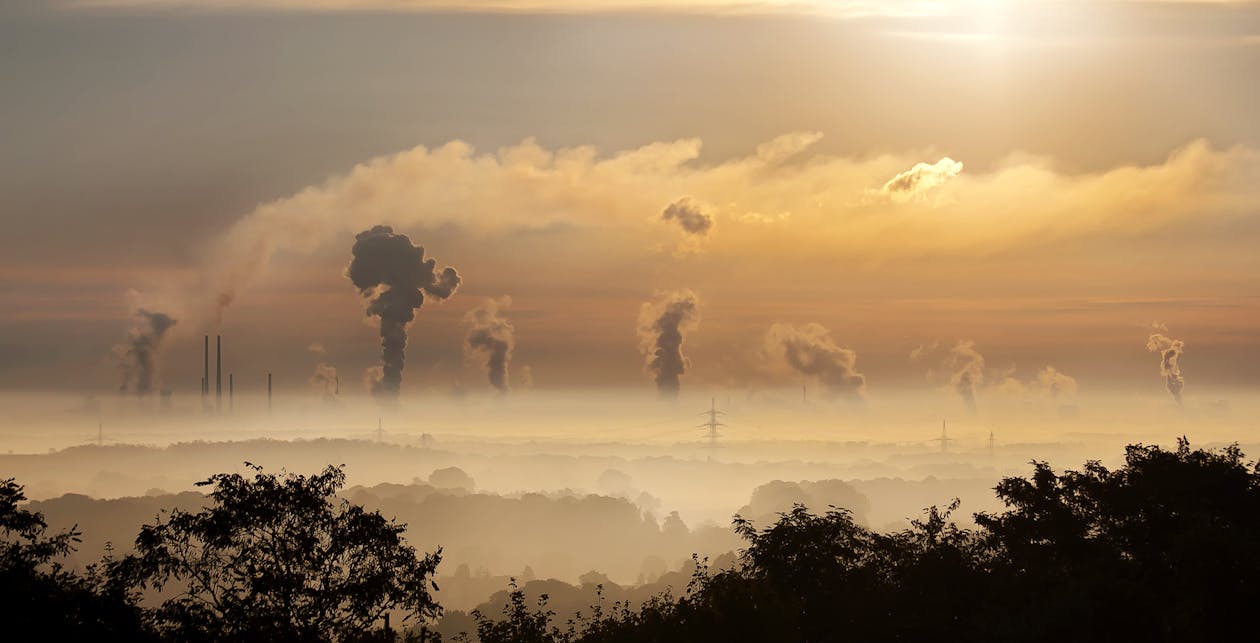Pollution is a global challenge that affects every living creature on the planet. It is not only an environmental issue but also a public health emergency. According to a recent report, pollution has been causing approximately 17% of deaths worldwide. The report stated that pollution was responsible for around 9 million premature deaths in 2019, and this figure has remained consistent for the last five years.

The Link Between Pollution and Mortality
Pollution remains the biggest threat to global health, leading to millions of premature deaths each year, according to a recent study by the Lancet Planetary Health journal. Shockingly, over 90% of these deaths occur in low- and middle-income countries.
Richard Fuller, the lead author of the report, expressed concern over the lack of attention given to this pressing issue. He emphasised that the alarmingly high death toll of 9 million annually should be cause for significant concern.
The study, based on 2019 data from the Global Burden of Diseases, Injuries, and Risk Factors, revealed that air pollution is responsible for most premature deaths, totalling 6.7 million. Water pollution claimed 1.4 million lives, while lead poisoning was responsible for nearly a million deaths. These findings echo a similar analysis conducted in 2015, which also identified air and water pollution as the primary culprits.
Shift in Pollution-Related Deaths Revealed
New data highlights a concerning change in the sources of pollution-related deaths. While overall numbers have remained steady over the past five years, the regions affected and the primary causes have shifted. In the past, indoor and household air pollution, along with contaminated water, was responsible for most of these deaths.
Encouragingly, there has been a decrease in these traditional pollutants, as households in China and India have switched to cleaner gas for cooking. However, this positive trend is overshadowed by the mounting health risks posed by fossil fuel burning, vehicle emissions, and toxic chemical pollution in developing nations.
A worrying global trend has emerged, with more than half of all countries experiencing a rise in deaths from outdoor air pollution and toxic chemicals in comparison to indoor air pollution and water contamination. In China alone, over 2 million lives were claimed by industrial and chemical pollution, dwarfing the roughly 367,000 deaths from traditional sources.
In Africa, traditional pollutants remain the primary cause of pollution-related illnesses and fatalities, although industrial pollution is on the rise. The implications are clear: industrialization, urbanisation, and an ageing population make people more vulnerable to the detrimental effects of air pollution, leading to a significant increase in associated mortality.
According to Neelu Tummala of George Washington University’s Climate Health Institute, the combined effects of these factors have led to a 7% increase in deaths caused by these “modern” sources of pollution from 2015 to 2019. Shockingly, these deaths have skyrocketed by 66% since 2000.
Economic Repercussions
Air pollution not only has devastating effects on public health but also on a country’s economy. In South Asia alone, air pollution deaths caused a significant 10.3% loss in GDP in 2019. This issue is not limited to one region, as globally, air pollution-related deaths resulted in a 6.1% reduction in economic output.
However, some countries have taken steps to mitigate their economic losses by implementing pollution controls and relocating industrial production to less developed nations. Unfortunately, this outsourcing practice has led to a staggering two million air pollution-related deaths, as revealed by a recent study on the world’s largest economies. To prevent a further increase in fatalities in low-income countries, urgent assistance is needed.
To combat pollution on a global scale, the report by Fuller and his colleagues proposes several recommendations. These include the establishment of pollution monitoring systems and financial support for pollution control projects. Countries must come together and take action to safeguard public health and protect the economy.
The Impact of Pollution on the Environment
Pollution has a severe impact on the environment, affecting ecosystems, biodiversity, and climate change. Toxic chemicals and pollutants discharged from industrial processes, agricultural activities, and human waste contaminate waterways, oceans, and land. This results in a range of environmental problems, including loss of biodiversity, deforestation, soil degradation, and global warming.
The effect of diesel emissions on the environment is also significant, especially for climate change. It has been linked to melting glaciers, rising sea levels, and an increase in extreme weather conditions such as hurricanes, droughts, and floods. This, in turn, triggers a vicious cycle, as climate changes create further environmental degradation, leading to more pollution and health problems. ClientEarth, along with several national NGOs, has filed legal complaints against the French, German, and UK governments for failing to hold manufacturers accountable for diesel claims and their inadequate response to the widespread use of illegal defeat devices in diesel vehicles, resulting in alarming levels of pollution. If you want to learn how you can protect your rights as a citizen and consumer, visit https://www.emissions.co.uk.
